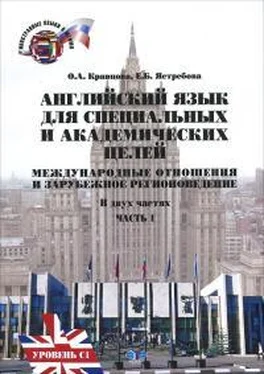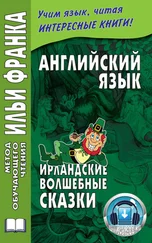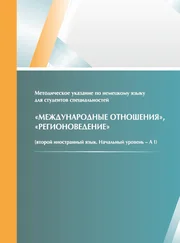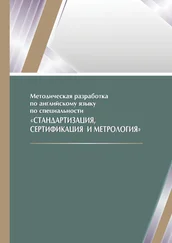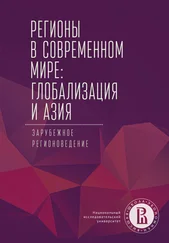In the annals of literature, no character is as renowned for his powers of “deduction” as the intrepid Sherlock Holmes, but the way Holmes operates is not generally by using deductive logic at all. He really uses inductive logic. First, he carefully observes the situation, then he generalizes from his prior experience, using analogy and probability, as he does in the following story:
Holmes and Watson are on a camping trip in the middle of the night. Holmes wakes up and gives Dr. Watson a nudge.
“Watson,” he says, “look up in the sky and tell me what you see.”
“I see millions of stars, Holmes,” says Watson.
“And what do you conclude from that, Watson?”
Unit I. UK: from Empire to Democracy
Unit I. UK: from Empire to Democracy
Watson thinks for a moment. “Well,” he says,
“Astronomically, it tells me that there are millions of galaxies and potentially billions of planets. Astrologically, I observe that Saturn is in Leo. Horologically, I deduce that the time is approximately a quarter past three. Meteorologically, I suspect that we will have a beautiful day tomorrow. Theologically, I see that God is all-powers, and we are small and insignificant. Uh, what does it tell you, Holmes?”
“Watson, you idiot! Someone has stolen out tent!”
We don't know exactly how Holmes arrived at his conclusion, but perhaps it was something like this:
1. I went to sleep in a tent, but now I can see the stars.
2. My intuitive working hypothesis, based on analogies to similar experiences I have had in the past, is that someone has stolen our tent.
3. In testing that hypothesis, let's rule out alternative hypotheses:
a. Perhaps the tent is still here, but someone is projecting a picture of stars on the roof of the tent. This is unlikely, based on my experience of human behavior and the equipment that experience tells me would have to be present in the tent obviously isn't.
b. Perhaps the tent blew away. This is unlikely, as my past experiences lead me to conclude that that amount of wind would have awakened me, though perhaps not Watson.
c. Etc., etc., etc.
4. No, I think my original hypothesis is probably correct. Someone has stolen our tent.
Induction. All these years we've been calling Holmes's skill by the wrong term.
***
Deductive logic reasons from the general to the particular. The bare-bones deductive argument is the syllogism “All men are mortal; Socrates is a man; therefore, Socrates is mortal.” It is amazing how often people screw it up and argue something like, “All man are mortal; Socrates is mortal; therefore Socrates is a man,” which doesn't logically follow. This would be like saying, “All men are mortal; my kid's hamster is mortal; therefore, my kid's hamster is a man.”
***
There is nothing like an argument from analogy. [...] Some have argued that because the universe is like a clock, there must be a Clockmaker. [...] this is a slippery argument, because there is nothing that is really perfectly analogous to the universe as a whole, unless it is another universe, so we shouldn't try to pass off anything that is just a part of this universe. Why a clock anyhow? Why not say the universe is analogous to a kangaroo? After all, both are organically interconnected systems. But the kangaroo analogy would lead to a very different conclusion about the origin of the universe: namely, that it was born of another universe after that universe had sex with a third universe. A fundamental problem with arguments from analogy is the assumption that, because some aspects of A are similar to B, other aspects of A are similar to B. It isn't necessarily so.
Another problem with arguments from analogy is that you get totally different analogies from different points of view.
Three engineering students are discussing what sort of God must have designed the human body. The first says, “God must be a mechanical engineer. Look at all the joints.”
The second says. “I think God must be an electrical engineer. The nervous system has thousands of electrical connections.”
The third says, “Actually, God is a civil engineer. Who else would run a toxic waste pipeline through a recreational area?”
***
TASK 2
Read another extract from this book; focus on logical fallacies.
The “Post Ergo Propter Hoc” Fallacy /“After this, therefore because of this”/
The phrase describes the error of assuming that because one thing follows another, that thing was caused by the other. For obvious reasons, this false logic is popular in sociopolitical discourse, such as “Most people hooked on heroin started with marijuana.” True, but even more started with milk. Post hoc makes life more entertaining in some cultures: “the sun rises when the rooster crows, so the rooster's crowing makes the sun rise.” Thanks, rooster! Or take our colleague:
Every morning she steps out onto her front stoop and exclaims, “Let this house be safe from tigers!” then she goes inside.
Finally we said to her, “What's that all about? There isn't a tiger within a thousand miles from here.”
And she said, “You see? It works!”
In general we are deceived by this fallacy because we fail to see there's another cause at work.
***
Circular Argument
Circular argument is an argument in which the evidence for a proposition contains the proposition itself. [ ]
It was autumn, and the Indians on the reservation asked their new chief if it was going to be a cold winter. Raised in the ways of the modern world, the chief had never been taught the old secrets and had no way of knowing whether the winter would be cold or mild. To be on the safe side, he advised the tribe to collect wood and be prepared for a cold winter. A few days later, as a practical afterthought, he called the national Weather Service and asked whether they were forecasting a cold winter. The meteorologist replied that, indeed, he thought the winter would be quite cold. The chief advised the tribe to stock even more wood.
A couple of weeks later the chief checked in again with the Weather Service. “Does it still look like a cold winter?” asked the chief.
Unit I. UK: from Empire to Democracy
Unit I. UK: from Empire to Democracy
“It sure does,” replied the meteorologist. “It looks like a very cold winter.” The chief advised the tribe to gather every scrap of wood they could find.
A couple of weeks later, the chief called the Weather Service again and asked how the winter was looking at that point. The meteorologists said, “We're now forecasting that it will be one of the coldest winters on record!” “Really!” said the chief. “How can you be so sure?”
The meteorologist replied, “The Indians are collecting wood like crazy!”
The chief's evidence for the need to stock more wood turns out to be that he was stocking more wood. Fortunately, he was using a circular saw.
***
Argument from Respect for Authority Fallacy
The argument from respect for authority is one of our boss's favorite arguments. Citing authority to support your argument is no logical fallacy in and of itself; expert opinion is legitimate evidence alongside other evidence. What is fallacy is using respect for authority as the sole confirmation of your position, despite convincing evidence to the contrary.
Ted meets his friend Al and exclaims, “Al! I heard you died!”
“Hardly,” says Al, laughing, “As you can see I am very much alive.”
“Impossible,” says Ted. “The man who told me is much more reliable than you.”
What is always at play with arguments from authority is whom one accepts as a legitimate authority.
A man walks into a pet shop and asks to see the parrots.
Читать дальше
